|
Underneath where eyes don't go A sound that keeps the beat that holds Alive the song I listen close Do I follow, do I follow, where it goes This refrain from the song, Where it Goes, by the Gray Havens provides a beautiful canvas of the human longing to live life most deeply. The human heart desires more than what the human flesh can provide on its own, recognizing that persistent longing (like a “beat that holds”) that exists “underneath where eyes don’t go.” This is, in a nutshell, the religious experience of every human person. The religious person recognizes this persistent desire and seeks to pay attention to it. I share this on the feast of St. Andrew and in the season of Advent, because the account of Andrew and John in the Gospel reflects this very experience--our experience. It is also an experience that the season of Advent invites us to embrace. What is this experience? It is our longing for the exceptional. Yes, it sounds cliché and hollow, but that is because many common words have lost their true value and power. Fr. Giussani, in his book Generating Traces, helps us recapture the essence of this word by describing the exceptional as that which corresponds to the deepest desires of one’s heart. So this experience (manifested by the song lyrics above and Andrew in the Gospel) is this longing to encounter that which corresponds to the deepest desires of one’s heart—a longing for the exceptional. The question in the song, “Do I follow?” is answered affirmatively by Andrew. He follows. But he follows a particular man. Why? What makes this one man worth following? What is it about this man that triggered a response to leave everything behind and follow? What is it about this man that allowed the disciples to have this great affection for Him? Fr. Giussani beautifully asks these questions and offers that one-word answer that again seems so simple—too simple—yet indeed profound. Fr. Giussani writes that this man, Jesus Christ, generated attraction because He was exceptional. And so Christ was exceptional in the eyes of the apostle Andrew because Christ corresponded to the deepest desires of his heart. Such reflections may lead us to wonder what this desire actually looks like in our life. Yes, we can, as faithful believers, affirm that Jesus is truly exceptional, but what does my desire for the exceptional look like on a daily basis? This year’s theme for the 2023 New York Encounter beautifully illustrates our current situation. To paraphrase, the theme highlights that the last few years have strengthened within each of us a desire for authentic community, a community that is truly interdependent. The uncertainty of the past few years (and the feeling of our inadequacy to face said uncertainty) have intensified our desire to be seen, accepted, and affirmed by someone in the flesh. We yearn for the presence of someone in our life who is not scandalized or embarrassed by our brokenness and sins. We desire the presence of someone who understands our life with certainty and accompanies us throughout it. We long for a presence that truly sees us and unconditionally loves us. This is why Andrew followed Jesus along the road. For the first time, Andrew experienced this presence that saw him, a presence that understood his own life better than he did, a presence that filled this need. This is why Andrew was able to respond with such simplicity and certainty—a simplicity and certainty which would seem absurd to any outsider (think about the absurdity of following someone along the road whom you have barely met!). But the exceptional presence of Christ—the fulfillment of his desire to be seen and loved—draws out this unquestionable attraction and clarity in Andrew. The season of Advent can draw out this unquestionable attraction and clarity within each one of us. This beautiful yet short liturgical season proposes a time to reawaken this desire and see with renewed eyes the exceptionality of Christ. In our longing to be seen, known, and loved, Advent proposes the coming of the only presence that can fill this need. Advent gives us, if you will, a space “underneath” in which we can listen close to the song of our heart. And like Andrew, we can follow.
0 Comments
It is fitting that as I write this blog in anticipation for National Vocation Awareness Week, the liturgical calendar has us moving through Paul’s letter to the Romans. In this letter, we find Paul emphasizing that we are now entering into a ‘new exodus.’ Just as Israel was liberated from Egyptian slavery, we are now liberated from the slavery of sin. The sacraments of Baptism and the Eucharist are the means by which Catholic Christian believers are joined to the new Exodus. Baptism is prefigured by the Israelites’ passage through the Red Sea, and the Eucharist is prefigured by the manna and the water from the rock in the desert. As we know well, the story does not end at our baptism. Rather, it is there that the story begins. Israel, having escaped from Egyptian slavery, quickly discovered that serving the Lord was even more demanding on the will than serving Pharaoh. In order to reach the Promised Land, the people of Israel had to take a path through a wilderness of trials and temptations. This path required a valiant conquest of all the obstacles of sin that stood in their way. In fact, the difficulty of the journey had some yearning for the days when they were slaves in Egypt. As children of the ‘new exodus’, our vocation in life is to travel through the wilderness of human life. Our exodus differs from the old in some ways, though. Our proclamation of the freedom found in Christ occurs while we travel. Our baptismal vocation calls us to ongoing sanctification, but it also calls us to witness this great exodus from sin and the new freedom in and won by Jesus Christ. We often desire the commitment to this ‘new exodus’ after seeing the commitment of others. This is a point that Fr. Luigi Giussani makes in his book titled, Is it Possible to Live this Way?. Fr. Giussani stresses the necessity of faith by which one encounters Christ indirectly through the witness of another. This witness tugs at our hearts to the point where we have no choice but to respond. Witnesses are therefore crucial to our discovery of this vocation - a vocation to partake in the new exodus. In my own life, my first example of such witnesses began with my parents. They not only gave me life, but they witnessed the faith by making the home a domestic church. Their marriage provided a template for me in my own vocation. They helped me see that the expression of freedom from the tyranny of selfishness comes through a spousal love. This spousal love is not exclusively expressed through the sacrament of matrimony, but it is also expressed through the sacrament of holy orders. As a diocesan priest, my local church in Harrisburg, particularly St. Francis Xavier in Gettysburg, is in a sense my spouse. I could not have such an understanding were it not for the witness of my parents. In addition, every seminarian and newly ordained priest can think of at least one other priest who first witnessed the presence of Christ to them through their own ministerial priesthood. In my case, I watched and learned first from my childhood pastor in New Hampshire, Fr. Marc Montminy. He was, and continues to be, a witness of Jesus Christ and a faithful spouse of the Church. Other priests who have taken on a similar role in my life are Fr. Frank Donio, S.A.C. (the Director of the Catholic Apostolate Center), priests of the Diocese of Harrisburg, faculty priests at Mount St. Mary’s Seminary, and priests elsewhere. As a priest, I seek (despite shortcomings and failures) to always be attentive to this desire - a desire to reach the promised land of eternal life through this new exodus. This is only possible because I have encountered people who not only accompanied me in discovering this desire, but who also witnessed it. This is, in essence, what it means to be a ‘humana viator’ (a wayfaring pilgrim). This is what it means to be an apostle. This is what it means to imitate Jesus Christ, the apostle of the Father. This is what it means to fulfill our baptismal vocation. During this National Vocation Awareness Week, may we be more attentive to this desire. May we recommit ourselves to this new exodus, which we have already begun through our baptism. May we also maintain and express our gratitude for those who have (and continue to) accompany us as witnesses. For more resources on Accompaniment, please click here. For more resources on Vocational Discernment, please click here. This week is National Vocations Awareness Week. When I tell my vocation story, I usually describe my vocation as a response to the great love that God has shown me throughout my life. I talk about what a joy it has been to fall in love with Christ and to give my whole life to him in a specific way in religious life. And that is absolutely true and beautiful. But if I’m being honest, it’s only part of the story. I am a novice with the Daughters of St. Paul, a congregation of women religious dedicated to evangelization through the media. Shortly before I entered the convent, I was plagued with a series of doubts regarding my vocation. I had discerned that God was calling me to enter religious life, but suddenly the vocation seemed too big for me. One time in particular, I went to my spiritual director deeply concerned that I had misrepresented myself to the sisters. When I looked in the mirror, I saw a normal 21-year-old. I’d watched The Office more times than I’d care to admit, had a newly acquired taste for craft beer, and had only kicked my swearing habit a few months before. As I prepared to move to the convent and begin my formation, I was worried that the sisters might be shocked to find out that I was still pretty far from being holy. “What makes you think that you haven’t been honest with the sisters?” my spiritual director asked me. “Whenever I visit the convent, I find myself acting like a much better person than I actually am. They’re going to find out the truth once they start living with me,” I explained. “Well,” he began chuckling, “Your vocation is the very thing that is going to make you into the best person you can be. That means you’re not there yet. But look, it’s already making you holier!” It can be tempting to think that we need to get our life in order before we respond to God’s call. We want to be perfect before we think that God can work through us. But friends, that day will never come on this side of heaven. And besides, that just isn’t God’s modus operandi. When we look at who God decides to call, it is never the person whom we would choose. Peter denied Jesus three times. Mary Magdalene had seven demons cast out from her. Paul, whom my congregation is named after, literally persecuted Christians. God is not afraid of our weaknesses or our wounds. In fact, it is often the very things that we view as obstacles to his grace that make us into powerful witnesses to his grace! The truth is, I’m not worthy of being called to be a religious sister. But no one is really worthy of this calling. That’s the beauty of a religious vocation and of the Christian life as a whole: it’s not about us and what we can do for God. It’s about God and what he wants to do in us. Every sacrifice that I’ve made in these past three years, every mistake, every time I have had to ask forgiveness or forgiven someone has served to make me into the person God wants me to be. So has every hour of Adoration, every Spirit-filled conversation, and every birthday that we’ve celebrated in community. There are these kinds of moments in every vocation where God uses something that seems strangely normal to bring us ever closer to himself. Vocation is a totally free gift that God has given to us. We could never earn or deserve it. It requires a response, but it begins with the fact that he has first loved us and desires to give us abundant life. That’s the truth about religious vocation— praise God for that. This past Tuesday, the Church celebrated the Solemnity of the Annunciation of the Lord. This feast, which commemorates the moment Gabriel appeared to the Virgin Mary to announce the plan of salvation God intended to bring forth, can seem a bit odd to celebrate during Lent. The Annunciation is a moment that we would usually associate with Christmas, as it introduces us to the official incarnation of God as Man. While March 25th is exactly 9 months before December 25th, I believe that celebrating the Annunciation during this time has more meaning than simply the significance of 9 months to December. In this post, I hope to share with you my thoughts on a few of the many beautiful features of this event in Christianity and how it pertains to our mission in the Liturgical season of Lent.
The Annunciation emphasizes both the importance of Mary and how the Annunciation brings the Incarnation of God into the realm of human history. I have noticed that people, when discussing this crucial event, typically compartmentalize these two aspects while forgetting their interconnectivity. I also find that this can result in one compartmentalizing their relationship with Mary and their relationship with God, failing to recognize how the two are woven together. I say this because I am certainly guilty as charged! Seeing the beautiful harmonization of the New Adam (Jesus) and the New Eve (Mary) can help us better understand the correct approach to bringing our hearts closer to God during Lent. You might then ask how this interconnectivity between Mary and the Incarnation occurs. Yes, Mary did give birth to Jesus, and many people stop there. However, I believe the harmonization is more than the mere act of Mary giving birth. This is where the Annunciation comes into play, as Mary agreed to submit herself fully to God’s will. The nature in which such agreement is founded on remains an open question. With this, however, I have found that the best answer to this question (in the span of my short, and continuously developing spiritual journey) lies in the spirituality that is the source and foundation of the Catholic Apostolate Center. In a blog I wrote some while back, I talked about God as Infinite Love, and I reference this again because I am referring to a spirituality of collaboration, where the Love of God is a collaborative invitation to participate in His will, which subsequently leads to being one with His love. We walk on our journey together with God, and this connectedness is why such a harmonization between the role of Mary and the Incarnation of Christ exists. The answer to how this harmony exists lies in the gift of free will. I mention free will because of it is important in the understanding of a collaborative relationship with God, one where we are free rather than forced to conform to His will. Another way of saying this is that God could have entered humanity, without our consent, into a new order where the original graces and gifts would be restored. However, God wanted us to love Him, and such love requires an act to freely choose Him while simultaneously rejecting something else (i.e. sin, worldly pleasures, and so forth). If God were to redeem humanity through the Incarnation of Christ, it would then be by human consent, in order that our dignity is maintained and we are ably to participate in this Infinite Love of God, and that God would offer the Incarnation (and therefore the opportunity to regain access to full participation in such Love) by means of collaboration with humanity. It is only through such collaboration that participation in the Love of God can occur. This is where our Blessed Mother, Mary, enters into the conversation. In the Annunciation, Mary is asked by the Angel Gabriel if she would freely consent to God’s plan to take humanity out of the abyss and to let him be completely enraptured by God’s Love (See Luke 1:26-35). Her response was the greatest act of liberty the world has ever seen: “Be it done unto me according to thy word” (Luke 1:38). This freedom is perfect because her Son was willed, and not merely accepted in any unforeseen or unpredictable way. There was no element of chance, but a desire of the Father to enact His will of salvation by means of collaboration. Mary, having full faith and love for God, essentially said “yes, I am willing to collaborate with Your will in order that I may participate in your Love.” Her willingness to collaborate is an act of harmonization, one that we cannot ignore in our lives of prayer and charity. With this being noted, how does this pertain to our journey of faith during the Lenten Season? Like Mary, we are called by God to collaborate with His will in order that we may grow in holiness and be ravished by His Love. The Annunciation reminds us that we have this gift of freedom to participate in such collaboration. After all, it would not be collaboration if we were forced to participate! We are shown that we can choose God and reject the things that keep us away from Him. This choice is deeply rooted to the extent that God would offer such a choice pertaining to our very own salvation, the Incarnation of His very own Son. Fortunately, we have an example, a role model who perfected this very act of freedom. That role model is Mary, as she collaborated with God’s will. Because of such a harmonization between Mary and God’s plan, the same harmonization can occur with us and God. We can pursue this harmonization with God by asking for Mary’s intercession. She can then us respond to such an invitation by saying: “Behold, I am the handmaid of the Lord. Be it done unto me according to Thy Word.” Andrew St. Hilaire is the Assistant to the Director of the Catholic Apostolate Center Growing up in a large Catholic family gave me the opportunity to interact with the Catholic Church’s love for Mary and the Saints. However, looking back just recently, it is no surprise that my appreciation of Mary came to being as I grew in a deeper appreciation of my own mother. I tell people that I would be content if I were a fraction of the person that she is. While I could go on forever about how wonderful my mother is, I’ll limit myself to just sharing one characteristic of her that I think is crucial for understanding and appreciating Mary as the Mother of God: when I go to my mom for advice, she will always end the conversation suggesting that I pray about it and ask God for the necessary virtues to make an action or decision. By asking me to pray about it, she helps me direct my attention toward Christ.
You may or may not have this same experience with your own mothers, but Mary is the Mother of God, making her Our Mother as well. We all have the opportunity to approach Mary’s open arms in the hope of receiving her comfort and love. But even more importantly, she is able to point us to Christ, to encourage us to grow our relationship with her Son. Look at scripture and you can see where Mary helps guide people to Christ. In particular, look at the Wedding at Cana, for instance, in John 2. Mary and Jesus were at a wedding, and the hosts ran out of wine. Mary went to Jesus and told him that they were out of wine and were in need of more. Jesus responded to her, "Woman, what is that to me and to you? My hour is not yet come." Mary did not really respond to this. Instead, she went to the waiters and told them, "Do whatever He tells you." Her remark shows that she knew that He was about to perform a miracle. She knew that he would fulfill her request. Jesus instructed the servants to fill some huge jugs with water. Because of Mary's advice they obeyed. Think about this now: Mary told Christ what the servants needed, and she then immediately told the servants to do as Jesus tells him. Does Mary not tell Christ our needs, and then instructs us to do as her Son instructs us to do? By going to our Blessed Mother, Mary can help us follow the path to Christ the way she helped the servants obey Jesus. Like the Wedding at Cana, she will tell her Son our needs and then, pointing to her Son, tell us to do as He instructs us. Mary not only directs us towards Christ. Our hearts yearn to be like Mary. This is because Mary fulfilled God’s invitation of perfect love, which allows her to become the person she was meant to be. We have that same calling. While we will not achieve this goal in absolute perfection the way Mary did, we can look to Mary as our human role model for true, authentic Christian love towards God and towards our fellow human being. Mary, being the New Eve of Creation, can directly link us to God. Think about this, if Mary directly brought Christ to the world, then would she directly bring us to Christ through prayer? She is our direct route to growing closer in Christ, as she knew Christ better than anyone else. So maybe like some of our own earthly mothers, Mary is our role model and our guide towards holiness. Andrew St. Hilaire is the Assistant to the Director of the Catholic Apostolate Center In my blog post on God as Infinite Love posted last Thursday, I reflected on praying as an active participation with God as the infinitely loving Father. What it did not address, however, were the practical realities concerning one’s life of prayer. To put it another way, it didn’t mention that such a task was hard to live out! With all the distractions and chaos of everyday life, it is too easy to fall into the trap of forgetting one’s dependence on God for all things. This trap, due to the human condition of sin, is in a way inevitable. So how does one persevere in praying when such distractions and forgetfulness occur?
The easy answer would be “don’t get distracted and don’t forget you depend on God for all things!” But let’s be honest with ourselves. Is that really practical? In a world of social media, can we, as humans, keep our focus on God at all times? I think most people, if sincerely evaluating their own lives, would say no. What do we do, then, to refocus on God and return to encountering His ceaseless love? I think there is a two-fold answer to this question that has been answered by Pope Francis and Blessed John Paul II. The only way we are even capable of persevering, that is, getting ourselves back on route, is to realize and always remember God as Infinite Mercy. In addition, we must also humbly accept his never-ending forgiveness, for doing such is an act of recognizing that we need Him (and not the other way around!). Blessed John Paul II dedicates an entire encyclical for reflecting on God’s Mercy. In Dives in Misericordia, he uses the parable of the prodigal son as an analogy (which was the Gospel reading two Sundays ago, if you recall). The son, who received a portion of his father’s inheritance, decided to spend it on a “loose lifestyle.” However, he soon realized what he had done, and how it had left him hungry. He reached such a point of guilt and hunger that he made the decision to go back to his father and say ‘Father, I have sinned against heaven and before you; I am no longer worthy to be called your son. Treat me as one of you hired servants.” But when the son heads back to his father’s house, before he can even finish his prepared statement, the father orders his servants to put the best robe on him and prepare a feast of celebration. This scripture passage shows that God’s mercy is an act of faithful love. God is faithful to his fatherhood and faithful to the Infinite Love He offers us in prayer. This is His Mercy, and it is a reminder to us all that God’s Love will never fail us. Think how generous this is! Looking back at the parable, the generosity of the father (when the son returns home) is so great, it angers the oldest son. The father responds, saying, “but now we must celebrate and rejoice, because your brother was dead and has come to life again.” The father’s fidelity to his lost son is totally and completely concentrated on the dignity of the son. This is the same way with God, our Father. The parable reveals that God’s Mercy is, in itself, an act of renewing His gift to us, our humanity. What does this have to do with our sought-out questions? This understanding of God’s Mercy, that is, as the prodigal son’s father, explains to us why we need God’s Love and Mercy. God’s Love and Mercy give us our human dignity. When we lose sight of God in our life, we lose sight of our human dignity. We lose it to such an extent that, deep down, we realize we are missing something. We realize we need God’s Mercy and Love to renew our human worth. It makes perseverance in a life of prayer that much easier, because we don’t have to worry about God abandoning us! However, it also makes it that much harder, because acknowledging our need of God requires a deep sense of humility. In his first Angelus, Pope Francis reminds the crowd that God never gets tired of forgiving, but we get tired of asking for His forgiveness. We must strive to come to God with an open and humble heart, as God will be eagerly waiting to offer His Forgiveness. Pope Francis does not just remind us to never tire of asking for God’s forgiveness, but he is a living testimony to that message. Just look at his interview with America Magazine. Before he talks about the Church needing to be a hospital of mercy, he first answers the question concerning who Pope Francis is. His answer: “I am a sinner whom the Lord has looked upon.” Before encouraging others to be merciful, he recognizes that he himself is in need of God’s mercy. He humbly accepts God’s Mercy Like the prodigal son, we wander off in our lives until a certain point hits us where we realize we are missing something. What do we need to do to ensure that we are able to get back to prayer, that encounter with God’s love? We first need to obtain the virtue of humility, like Pope Francis, to realize that we are lost and in need of God to renew us. To persevere in praying, all we need to do is say the words Pope Francis said in the interview: “I am a sinner whom the Lord has looked upon.” Out of that humility, we can accept God’s Infinite Mercy, because we know, that like the prodigal son’s father, He will always be faithful. For some simple reflection, listen to this song by Matt Maher. It has helped me many times: http://www.youtube.com/watch?v=LuvfMDhTyMA Andrew St. Hilaire is the Assistant to the Director of the Catholic Apostolate Center Why do Christians, and in particular Catholics, pray? What is the purpose of prayer and how does it have any effect on me? Growing up in New England, I find that more people don’t see the significance of praying to God, even if they believe in his existence. They don’t see how a relationship with God can bring any meaning into their lives. On the other side of the coin, I think that while the majority of practicing Catholics realize that prayer, especially the prayer we call the Mass, is important, we can’t really articulate what the purpose of prayer is. We fail to grasp its necessity in fulfilling the deepest longings in our hearts.
While this may sound problematic if unanswered, the beautiful solution lies at what the past two popes say about prayer. If I were give you a SparkNotes summary as to why Popes Benedict XVI and Francis believe prayer to be so important, it would be three words: God is Love. This description of God comes from the first letter of John 4:16 – “God is love, and he who abides in love abides in God, and God abides in him.” Well, you’re probably thinking that sounds nice and pretty, but what does God being “love” have to do with me praying? The Catechism of the Catholic Church, as noted by Pope Benedict XVI in his General Audience on May 11, 2011, states that “In prayer, the faithful God’s initiative of love always comes first; our own first step is always a response.” So the Catechism is defining prayer as receiving and responding to God initiating himself to us as love. When we are praying, we are not merely attempting to talk to an open space in our room or in a chapel; we are receiving the love of God. This receiving makes prayer a form of participating in an event or experience, not just a conversation. That event we’re talking about is the love of God, because it was and continues to be revealed through his son, Jesus Christ. So the first point is that prayer is the participation (receiving and responding) in God’s love, making prayer not only a conversation with God, but also an event. This is all very good, but how does one participate in this “event”? This is where Mass becomes important, because this experience occurs every time we go to Mass when the bread and wine become the Mystical Body and Blood of Christ. We participate in this prayer by receiving the Body and Blood of Christ. We’ve come to understand that the Mass is the foundation and apex of Catholic prayer. Why, then, do we participate in additional forms of prayer, such as the Rosary, the Liturgy of the Hours, and so on? Why can’t I just go to Mass and get everything I need there? I like to think that the best responses are counter-questions, so let me try to answer this by asking the following: why wouldn’t someone, who receives God as Infinite Love in the Eucharist, want to have any form of separation from him? Think about it. If we were to just go to Mass, and nothing more, we wouldn’t be perpetually united with God. We’d have a good foundation with Mass, but that’s like saying there is no need to build the rest of a house (i.e., the roof) because it has a good foundation. Another analogy I like to think of is a family event, such as a family vacation or Thanksgiving dinner. You don’t build relationships with loved ones by just showing up for family gatherings (or at least I hope not). You spend time with them outside the event as well! If I love my parents, I will not just show up for Thanksgiving. I will want to talk with them on a regular basis to catch up and see how things are going. Spending time with God sounds good, but where do I start? What do we say to God in prayer? Pope Francis offers us some advice. In his daily homily for Mass on June 20th, he said the following: “There is no need to fritter away words in order to pray: the Lord knows what we want to say to him. The important thing is that our first word be “Father.” This prayer that says ‘father’ first is the Our Father that Jesus gave to the apostles in the Gospel of Matthew (6:7-15). Pope Francis then makes an additional point. He says that rather than praying to the “God of cosmos,” we must pray to the “Father” who begot us. To go further, we pray “our” Father because he is not generic or anonymous, but the “One” who has given life to each and every one of us. When we go back and say, “God is Love,” God is not some distant figure. He is “Our Father,” and that is how we can pray to him. We can use the very words that Jesus taught us. Prayer is our willingness to participate in the love of God, who is our Father, and his manifestation of love to us is not just a conversation, but also an experience we are fortunate to perpetually be part of if we so desire. That is why prayer is important. Without prayer, we cannot receive nor can we answer to our Father’s invitation of His Infinite Love. So go to Mass, pull out your Rosary, read scripture, and spend time with God because it is an invitation to be united in love with your heavenly Father. You could even start by simply saying, “Our Father…” Andrew St. Hilaire is the Assistant to the Director of the Catholic Apostolate Center |
Details
Archives
July 2024
Categories
All
|
About |
Media |
© COPYRIGHT 2024 | ALL RIGHTS RESERVED

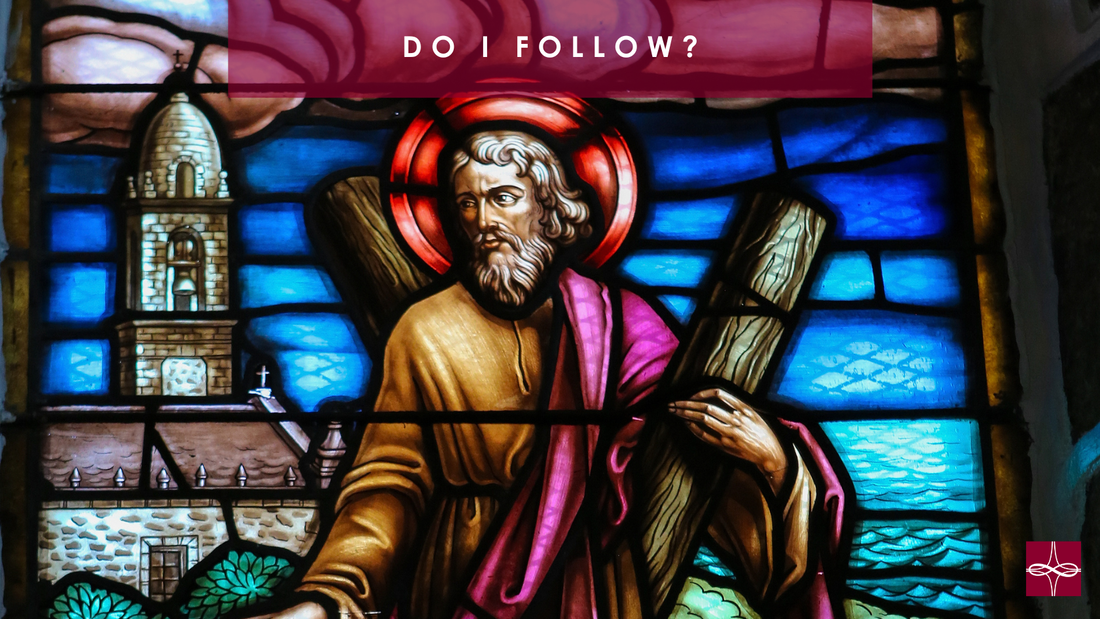
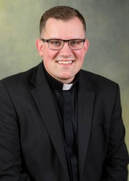
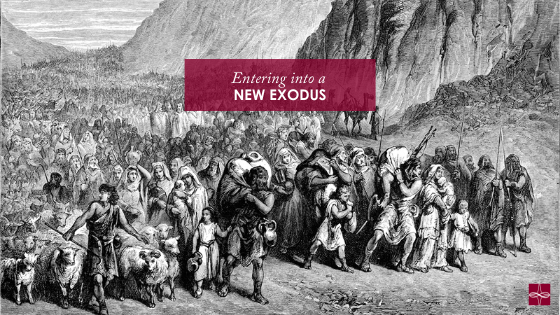
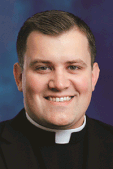
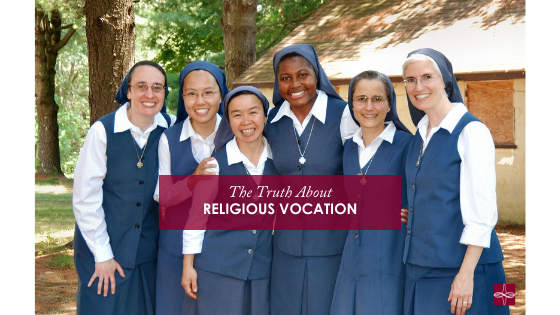
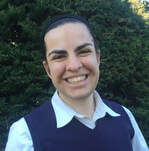

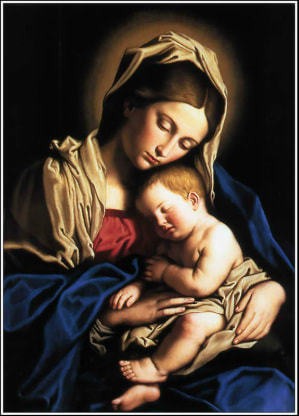
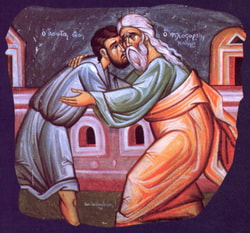
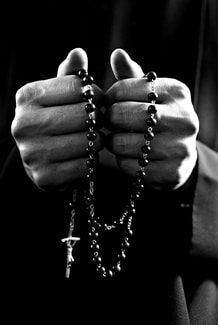
 RSS Feed
RSS Feed